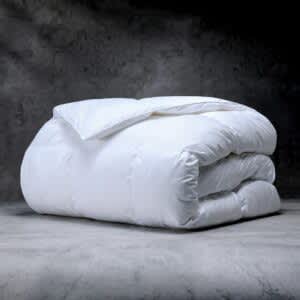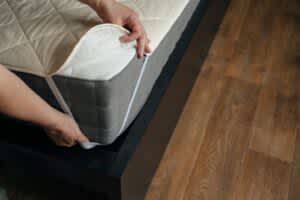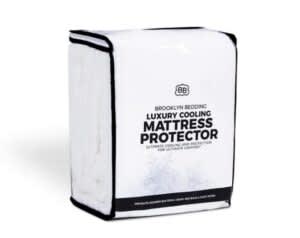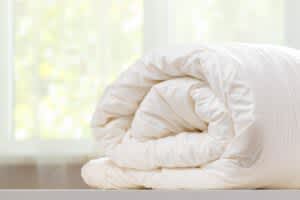When it comes to bed components, your sheets are the piece that most often comes into contact with your face, hair, and skin. Washing your sheets helps keep them fresh. After all, there’s nothing quite like the feeling of relaxing into a newly made bed with clean sheets.
Keeping your sheets clean also has added benefits for your health and quality of sleep. We’ll discuss why washing your sheets is vital for keeping your sleep environment clean and healthy and how frequently you should be washing your sheets.
The Importance of Clean Sheets
Your mattress, pillows, and bedding help create a comfortable and healthy place for you to recharge every night. While a cover protects your mattress, your sheets come into direct contact with your body and indoor allergens. As a result, it’s crucial that you clean your sheets on a regular basis.
Clean bed sheets contribute to a comfortable night’s rest. Each night, your internal clock lowers your body’s core temperature in preparation for sleep. Your sheets help create a microclimate between your body and your bed, drawing heat away from your core and lowering your internal temperature.
However, the close contact can take a toll on your sheets. After spending 7 to 9 hours in direct contact with your body, your sheets can absorb a substantial amount of sweat, body oils, and dead skin cells.
Additionally, your sheets are consistently exposed to the indoor air in your bedroom. This allows your sheets ample time to collect indoor allergens such as dust mites and pet dander. These particles may exacerbate allergies and cause symptoms that can disrupt your sleep. Cleaning your sheets frequently reduces the likelihood of building up body odor and being exposed to indoor allergens.
Shop the Best Sheets of 2024How Often Should You Wash Your Sheets?
While many people understand the importance of keeping sheets clean, it’s also important to know how often you should wash your bedding. Since your sheets come into direct contact with your skin, we recommend washing your sheets once a week or every other week at a minimum.
While it’s essential to sleep with clean sheets, keep in mind that running your sheets through the washing machine too frequently also has its drawbacks. Washing your sheets more than once a week may wear down the fabric, causing damage such as thinning and holes.
Nearly all modern sheet sets can be cleaned in a washing machine and dryer. Most sheets do well in warm or cold water and should be tumble dried on low. While these guidelines apply to most sheets, be sure to carefully read the manufacturer’s instructions before washing. Certain fabrics may be more delicate and require special care.
What Factors Contribute to Buildup on Your Sheets?
Every sleeper is different. For some, washing their sheets every other week works well, while others may need to stick to a strict weekly schedule. We’ll discuss the most common lifestyle factors that can contribute to buildup on your sheets.
- Skin and Hair Conditions: Certain conditions such as eczema or psoriasis may increase the amount of dead skin cells and body oils you shed on your sheets each night, requiring more frequent cleaning.
- Pets: Many pet owners enjoy sleeping with their furry companion. While this can bring a great deal of comfort to your nightly routine, you may need to wash your sheets more regularly to reduce the build up of pet hair, dander, and drool spots.
- Food: Eating in bed can also contribute to buildup on your sheets. Even if you avoid spills and other accidents, crumbs and grease stains from your hands can soil your sheets.
- Allergies: If you live with allergies, washing your sheets more regularly may help reduce your exposure to allergens at night and keep your symptoms at bay.
- Climate: Hot and humid climates can lead to more sweating at night, which means you’ll need to wash your sheets more frequently. If you live in a warm climate, choosing the right sheets can help keep you cool and reduce nighttime sweating.
Ask the Sleep Doctor
Have questions about sleep? Submit them here! We use your questions to help us decide topics for articles, videos, and newsletters. We try to answer as many questions as possible. You can also send us an email. Please note, we cannot provide specific medical advice, and always recommend you contact your doctor for any medical matters.








































